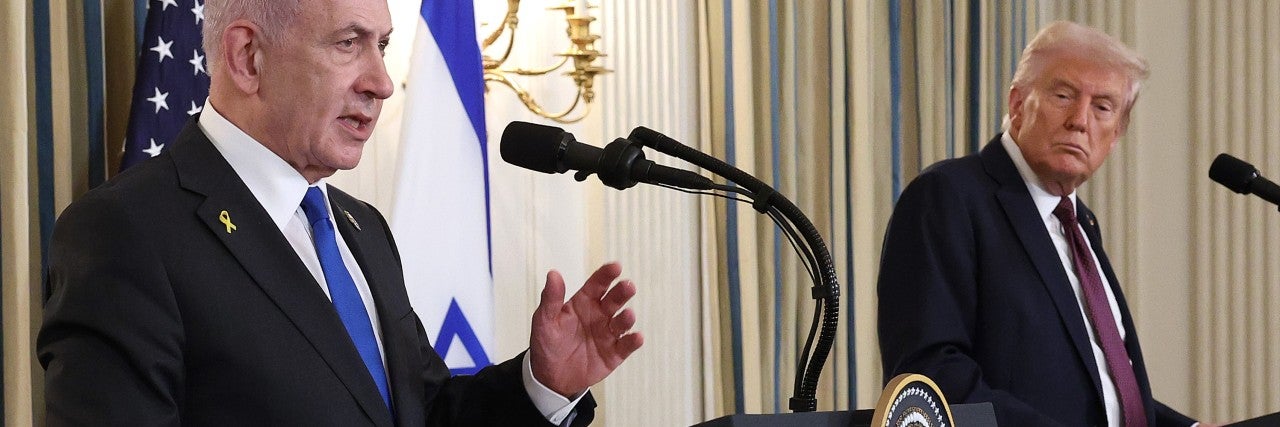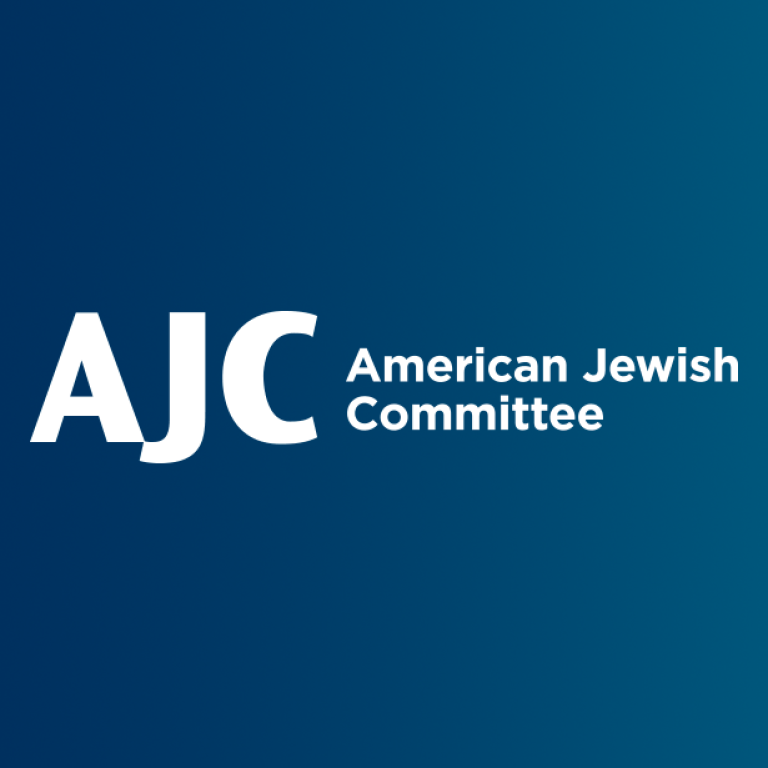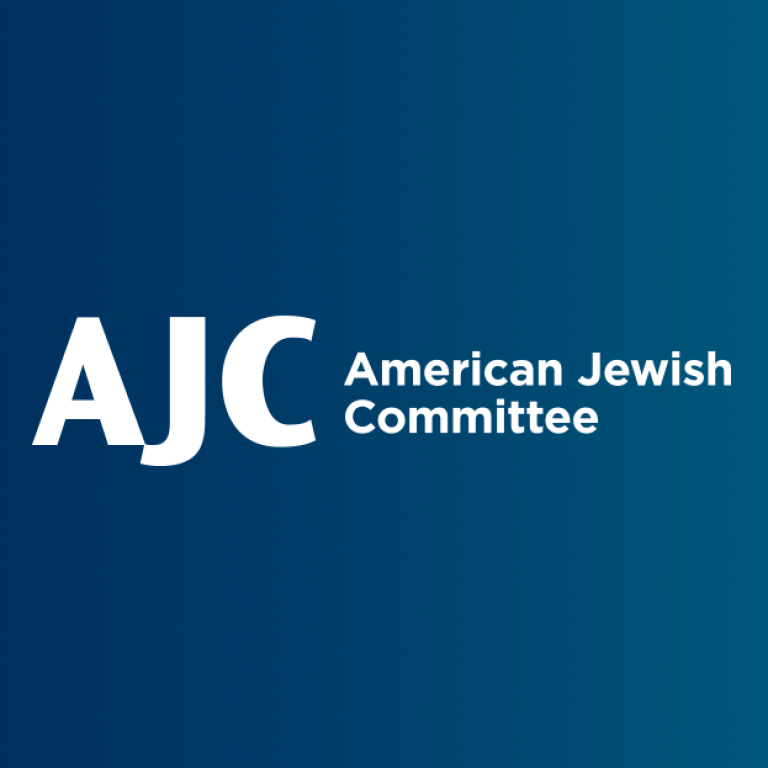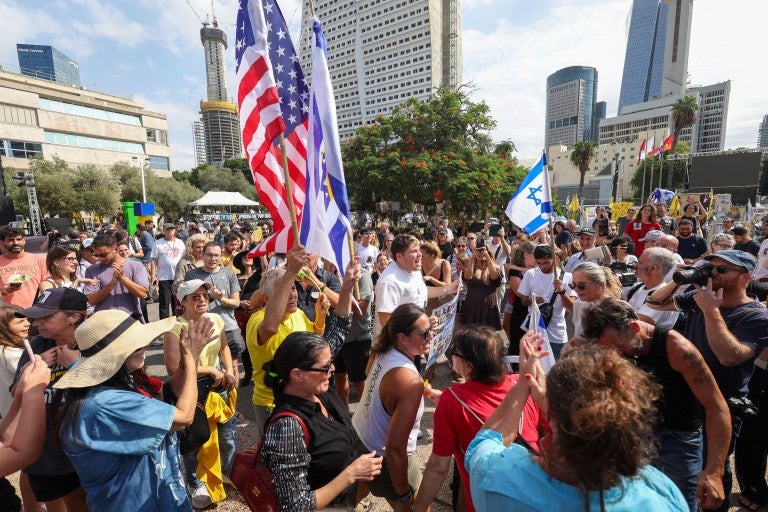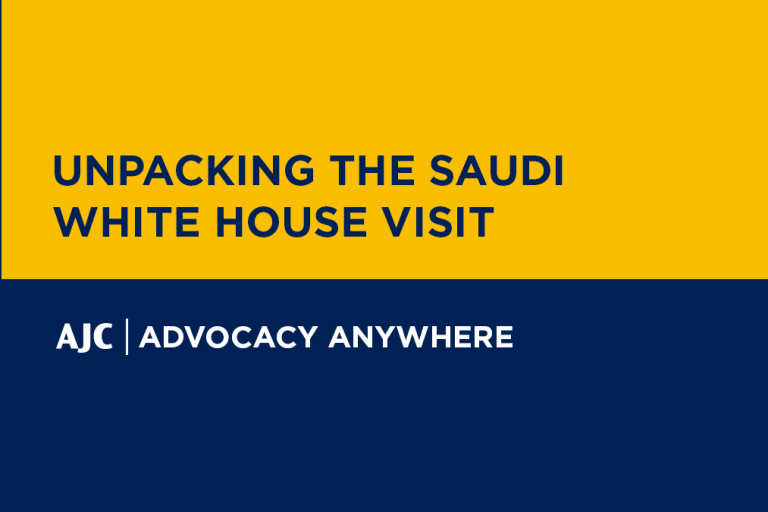October 1, 2025
President Trump’s newly unveiled 20-point peace plan to end the war in Gaza has drawn strong support from Israel, Europe, the Muslim world, and much of the international community. The U.S. has put forward a framework that prioritizes Israel’s security, demands the release of all hostages, and blocks Hamas from playing any future role in Gaza. Yet the plan’s success depends on Hamas—an Iranian-backed terror group that has already rejected multiple ceasefire and hostage deals since March 2025.
AJC Jerusalem Director Lt. Col. (res.) Avital Leibovitch, AJC Abu Dhabi Director, Marc Sievers, and AJC Director of the Middle East and North African Initiative, Benjy Rogers, analyze the opportunities and challenges this historic moment presents.
From Jerusalem: Avital Leibovitch on Israel’s Response
Wall-to-wall coverage
Every single Israeli media outlet sent at least one reporter to cover Prime Minister Netanyahu’s visit at the White House, his fourth visit since President Trump was elected. Festive broadcasts from the lawns of the White House lasted for hours, and many Israelis were glued to the screen, looking for some hope after the past two harsh years.
What the plan includes
Trump’s plan, as presented at the White House, presents concessions to both sides–the Israelis and the Palestinians.
On the one hand, Israel will need to release more than 2000 prisoners, many with murderous backgrounds, and avoid annexing any areas from the West Bank, as well as committing to no Hamas attacks on Qatari soil, while Hamas needs to commit to releasing all the hostages at once and disarm.
Scenarios for Hamas
I don’t foresee Hamas agreeing to the plan, and we may see the following scenarios:
- Hamas will return a positive answer but will ask to further discuss some of the points of the plan, after which it will attempt to delay the process for as long as possible.
- Hamas will completely decline the plan.
Public opinion
The plan was received very positively by the Israeli public, especially due to the fact that the U.S., for the first time, is taking a practical lead on the issue of Gaza.
A poll published by The Jerusalem Post found that 71% of Israelis expressed some level of favor toward the plan. However, the same survey showed that only 12% believe it can be realistically implemented. Another poll focused on coalition (i.e., pro-government) voters found that 41% back the plan, versus 33% who oppose it, marking the first time support among Netanyahu voters surpasses outright opposition. These results suggest that while the plan is broadly seen as desirable in principle, many Israelis are deeply skeptical about its practical viability.
Political reactions
Among political actors, reactions have been divided. Prime Minister Benjamin Netanyahu announced his support, stating, “I support your plan to end the war in Gaza, which achieves our war aims. It will bring back to Israel all our hostages, dismantle Hamas’ military capabilities, end its political rule, and ensure that Gaza never again poses a threat to Israel.”
In contrast, Finance Minister Bezalel Smotrich harshly criticized the proposal, calling it “a historic missed opportunity … and in my estimation it will end in tears. Our children will be forced to fight in Gaza again.” Smotrich also derided the positive reactions to the proposal, saying “the celebrations since yesterday are simply absurd.” The schism between Netanyahu and his far-right ministers reveals the fragile nature of the governing coalition amid this diplomatic gambit.
What’s next
As Israel will be heading into elections in 2026 (as originally planned), this may take place earlier in the year, should Smotrich decide to leave the government, leaving it without a majority.
Following the joint announcement by the foreign ministers of Qatar, Jordan, the UAE, Indonesia, Pakistan, Turkey, Saudi Arabia, and Egypt, Hamas is more pressured and isolated than ever. The word ‘peace’ appears in this less than one-page statement, no less than five times, indicating a genuine wish for a significant change in Gaza.
Now, an entire country, especially the 48 families of the hostages, is holding its breath waiting for Hamas’ answer. If Hamas declines, it may take from one month to a few months to complete the military operation in Gaza.
From Abu Dhabi: Marc Sievers on Arab Reactions
Arab states rally behind plan
Qatar’s Ministry of Foreign Affairs released a joint statement with the foreign ministries of Jordan, UAE, Indonesia, Pakistan, Turkey, Saudi Arabia, and Egypt on September 29, welcoming President Trump’s 20-point plan. The statement declares these key Arab and Islamic countries’ commitment to work with the United States to “find a path to peace.” The statement goes on to note their readiness to “engage positively and constructively with the United States and the parties toward finalizing the agreement and ensuring the implementation in a manner that ensures peace, security and stability for the peoples of the region.” This statement is highly unusual in that it was issued jointly in the names of a group of countries that seems to represent a “coalition of the willing” more than any existing Arab or Islamic institutions or bloc. The chief common denominator is that they all maintain close relations with the United States and were all invited to the meeting with President Trump in New York.
Careful diplomacy
What’s missing from the statement is any reference to Israel or Hamas by name. The closest it comes is the reference to engaging with the parties (presumably to the conflict) as well as with the United States. This kind of hyper-cautious diplomatic wording is often characteristic of Gulf diplomacy and presumably reflects internal tensions within this group regarding how to refer to, let alone deal with, Israel. Nonetheless, given the heated and emotional rhetoric that has characterized much of the Arab and Islamic declarations since October 7, this is a very positive statement, even if it reflects the shared confidence in Washington more than anything else. That point underscores the importance of the U.S. role, and specifically the commitment of President Trump, in holding this emerging peace coalition together.
The UAE’s engagement
In contrast, the UAE highlighted Foreign Minister Sheikh Abdullah bin Zayed’s bilateral meeting with Prime Minister Netanyahu shortly after Netanyahu delivered his address to the UNGA. The UAE was among the countries (along with Bahrain) that did not walk out when Netanyahu arrived at the podium. Contacts in Abu Dhabi stress that, while they recognize that Hamas may reject Trump’s plan, they are gearing up to be prepared to participate in post-conflict arrangements in Gaza whenever conditions permit. The UAE is also very pleased by President Trump’s insistence on no Israeli annexation of the West Bank, as well as PM Netanyahu’s acceptance of Trump’s demand. Recently promoted Emirati Minister of State Lana Nusseibeh notably gave an interview to The Times of Israel over a month ago, stressing the highly damaging impact of any Israeli annexation on further normalization, even though she stopped short of suggesting that the UAE would freeze relations with Israel, even in the event of annexation.
The Saudi factor
What appears missing so far is a clear comment from Riyadh. It’s noteworthy that while Saudi Arabia traditionally seeks to speak as the leader of the Gulf states, the Saudis have so far taken a low-key approach, joining the rest of the coalition in supporting the President’s plan but not signaling a distinctive role for themselves. It’s also noteworthy that Crown Prince Muhammad bin Sultan has been much less publicly visible since President Trump’s high-profile visit to Riyadh in May. As is often the case with Saudi Arabia, there is likely much going on behind the scenes. However, so far, the Saudi leadership is aligning with their Arab and Islamic partners in supporting the President, without signaling a significant role for themselves in post-conflict governance, security, or reconstruction.
From Washington: Benjy Rogers Analyzes Trump’s Gaza Peace Proposal
Turning point
The Trump Administration’s newly announced 20-point plan represents a potential turning point—one that shifts the region's trajectory away from war and toward a more peaceful, integrated Middle East.
Plan priorities
At its core, the plan prioritizes the release of Israel’s 48 hostages. It seeks to empower moderate leaders by ensuring that Hamas and other extremist factions will have no role in governing Gaza. It rejects any prospect of Israeli annexation in Gaza, calls for a surge in humanitarian aid, and lays out the framework for a comprehensive political and economic development plan to rebuild and revitalize the Strip.
International support
A centerpiece of the proposal is the creation of an International Stabilization Force (ISF) charged with policing Gaza, alongside significant reform requirements for the Palestinian Authority to strengthen governance. The plan acknowledges Palestinian self-determination and opens a possible pathway toward statehood, offering a political horizon for peaceful and prosperous coexistence.
While the details remain limited and implementation will face significant challenges, the broad endorsement across the Arab world and Muslim-majority countries—including from Saudi Arabia, Jordan, the UAE, Indonesia, Pakistan, Qatar, and Egypt—demonstrates that this initiative extends far beyond a temporary Gaza cease-fire. It represents the first credible outline for achieving comprehensive Arab-Israeli peace that has been endorsed not only by Arab leaders, but also by Israel.
The U.S. role
The proposal also highlights the indispensable role of U.S. leadership in the Middle East. President Trump will chair the Board of Peace, the transitional governing body of Gaza, tying the plan’s success directly to his administration’s ability to drive not only the vision of the 20-point plan, but its implementation.
The Hamas obstacle
At present, the greatest obstacle is Hamas. The plan’s success ultimately depends on Hamas’s willingness to accept a constructive path forward—an acceptance that will determine whether this opportunity for peace becomes a reality. Diplomatic pressure on the terror group is now at an all-time high.
